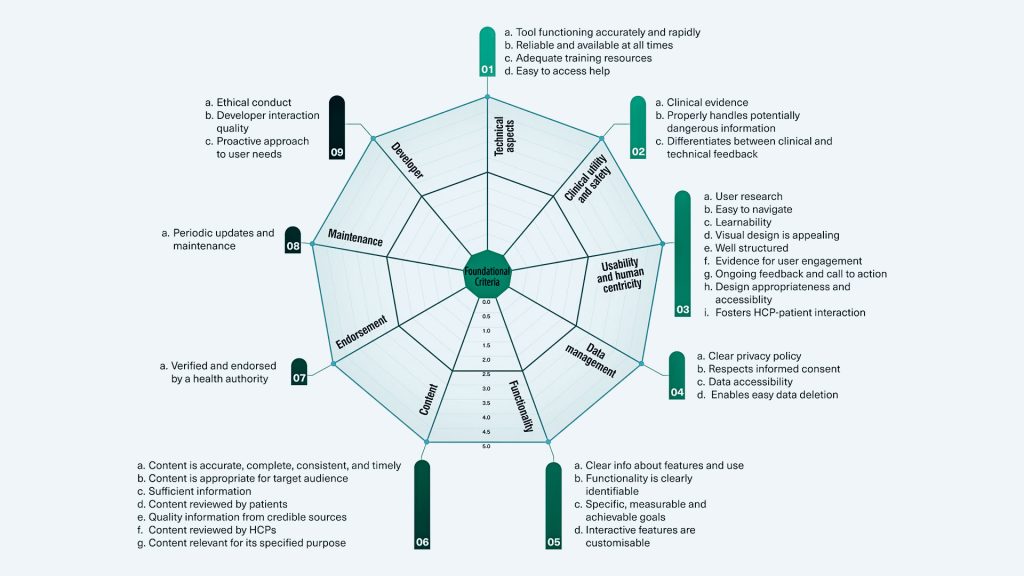Imagine a world where every click on your phone or computer contributes to your well-being. A world where eHealth tools are your allies in managing your health. Sounds promising. But here’s the catch – not all that glitters is gold. With thousands of eHealth tools available, discerning which is precious is a journey fraught with complexities.
In 2023, a groundbreaking study titled “A Sociotechnical Framework to Assess Patient-Facing eHealth Tools” shed light on this issue. This study isn’t just a collection of facts and figures; it’s a narrative of dedication, innovation, and the quest for clarity in the ever-expanding universe of eHealth.
The Challenge: A Sea of Tools, A Dearth of Quality
Imagine a bazaar buzzing with thousands of stalls, each offering a different eHealth tool. You’re there to pick one that suits your needs, but you’re overwhelmed. This is the reality for many. Despite the abundance, few tools have been systematically assessed for quality, effectiveness, or safety. The study revealed that most of these tools don’t move past the pilot phase due to their inability to demonstrate real value.
The Solution: A Compass in the Chaos


📷 A Sociotechnical Framework to Assess Patient-Facing eHealth Tools
Enter the sociotechnical framework. This isn’t just any framework. It’s a carefully constructed guide developed through a modified Delphi process, where experts from various fields and 18 countries collaborated. They voted, discussed, and ultimately agreed upon 46 criteria to assess eHealth tools, categorized into foundational and contextual criteria.
- Foundational Criteria: The Core of Quality
- Regardless of its specific use, these are the non-negotiables, the aspects that every tool should possess. They include technical robustness, clinical utility, safety, usability, and more. Each criterion is a building block in the fortress of reliability and effectiveness.
- Contextual Criteria: The Personal Touch
- These criteria understand that healthcare is personal and contextual. What works in one setting might not in another. Factors like data protection, cultural requirements, affordability, and cost-benefit analysis play a crucial role here.
The Process: A Journey of Consensus and Clarity
The study was meticulous. Experts rated each proposed criterion, and through rounds of surveys and interviews, they shaped a framework that reflects collective wisdom and understanding of eHealth’s diverse landscape.
Why Does This Matter to You?
You might wonder, “This all sounds great, but what does it mean for me?” Here’s the deal:
- Informed Choices: With these criteria, you can evaluate eHealth tools yourself. Does the tool respect your privacy? Is it technically sound? Does it consider your cultural needs? These aren’t just questions; they’re pathways to making informed decisions.
- Quality Healthcare: Tools that meet these criteria are more likely to be effective and safe, ensuring that the technology you use contributes positively to your healthcare journey.
- A Conversation Starter: This framework isn’t just for users. It’s a beacon for developers, policymakers, and healthcare providers to build and advocate for tools that genuinely matter.
Conclusion: Your Health, Your Tools, Your Choice
Choosing the right eHealth tool is akin to picking a companion for your health journey. It should be trustworthy, understanding, and effective. As you navigate this digital landscape, let this framework be your guide, your compass, and your assurance that the path you choose leads to better health and well-being.
And remember, in the words of a wise physicist, “The first principle is that you must not fool yourself, and you are the easiest person to fool.” So, equip yourself with knowledge, ask the right questions, and choose tools that genuinely add value to your life.
Three Reasons This Matters:
- Empowerment: Understanding these criteria empowers you to make choices that align with your health needs and values.
- Safety: It elevates your safety and ensures that the tools you rely on are held to the highest standards.
- Advocacy: It gives you a voice to demand better quality and accountability in your eHealth tools.
Three Tips for Choosing an eHealth Tool:
- Check for Endorsements: Look for tools endorsed by reputable health organizations or have undergone rigorous assessment.
- Prioritize Privacy: Ensure the tool respects data protection laws and gives you control over your information.
- Seek Real-world Feedback: Look for reviews or testimonials from users who have health needs and contexts similar to yours.
As we stand at the crossroads of health and technology, the power to choose wisely is in your hands. Use it well.
References:






